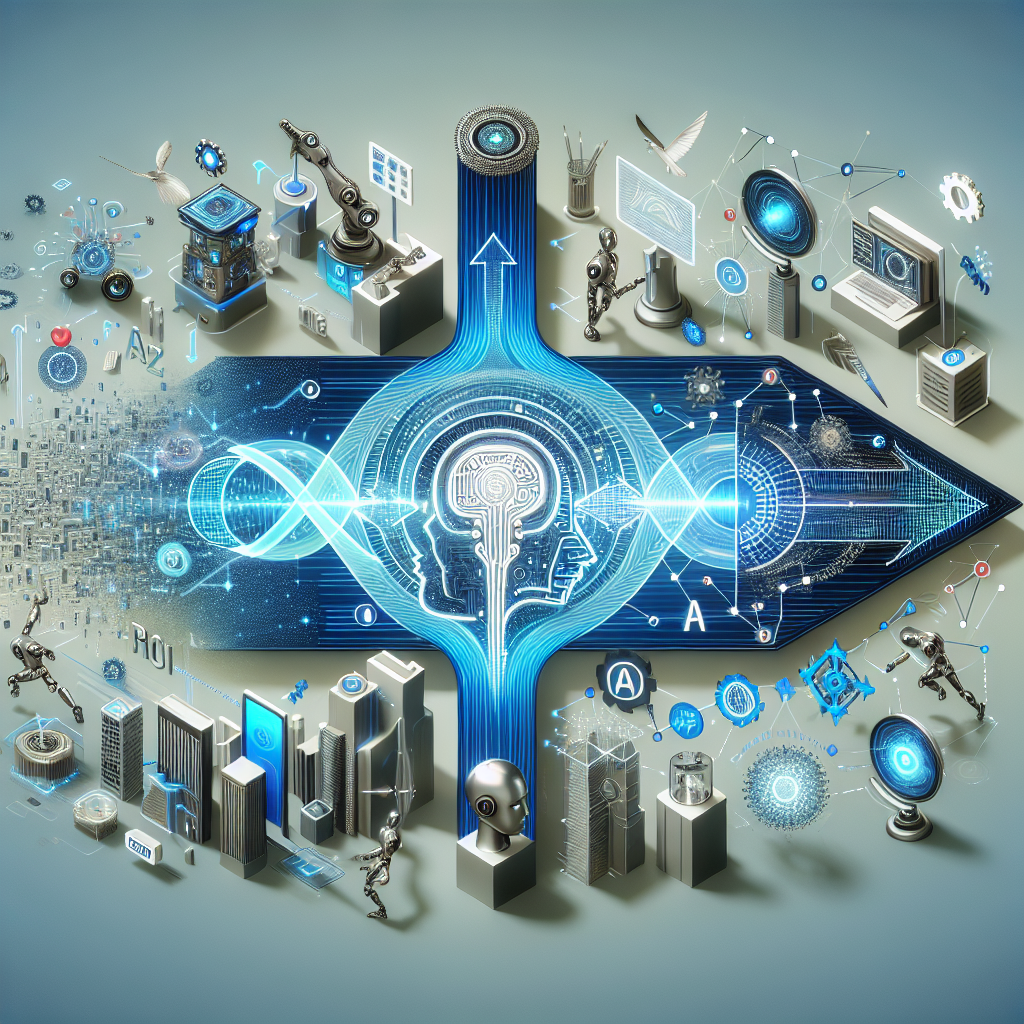From Sci-Fi to Reality: How AGI is Revolutionizing the Tech Industry
Artificial General Intelligence (AGI) has long been a staple in science fiction, with depictions of intelligent machines and robots dominating popular culture for decades. However, what was once considered purely fictional is now becoming a reality, as advances in technology and artificial intelligence (AI) are bringing us closer to creating machines with the ability to think and learn like humans. AGI has the potential to revolutionize the tech industry and transform the way we live and work. In this article, we will explore the impact of AGI on the tech industry and how it is shaping the future of technology.
What is AGI?
AGI refers to artificial intelligence systems that have the ability to understand and learn any intellectual task that a human can. Unlike narrow AI, which is designed for specific tasks such as playing chess or driving a car, AGI aims to replicate the cognitive abilities of a human being. AGI is often referred to as “strong AI” or “general AI” because it is capable of performing a wide range of tasks without being explicitly programmed for each one.
The development of AGI has been a long-standing goal in the field of artificial intelligence, with researchers working towards creating machines that can reason, plan, learn, and perceive the world like humans. While we are still far from achieving true AGI, recent advancements in machine learning, deep learning, and neural networks have brought us closer to this goal than ever before.
How is AGI Revolutionizing the Tech Industry?
The potential applications of AGI in the tech industry are vast and varied, with the ability to revolutionize everything from healthcare to finance to transportation. Here are some ways in which AGI is already making an impact:
1. Healthcare: AGI has the potential to revolutionize healthcare by enabling more accurate diagnosis and treatment of diseases. AI systems powered by AGI can analyze vast amounts of medical data to identify patterns and predict outcomes, leading to better patient care and outcomes.
2. Finance: In the finance industry, AGI is being used to improve risk management, fraud detection, and trading strategies. AI-powered systems can analyze market trends and make predictions with greater accuracy than human traders, leading to more profitable investments.
3. Transportation: AGI is also being used to enhance transportation systems, with autonomous vehicles being one of the most prominent examples. Self-driving cars powered by AGI can navigate roads, make decisions, and react to changing conditions with human-like intelligence, leading to safer and more efficient transportation.
4. Customer Service: AGI is transforming customer service by enabling chatbots and virtual assistants to provide personalized and efficient support to customers. AI-powered systems can understand natural language, learn from interactions, and respond to queries with human-like intelligence, improving the customer experience.
5. Education: AGI has the potential to revolutionize education by personalizing learning experiences for students. AI-powered systems can adapt to individual learning styles, provide real-time feedback, and offer personalized recommendations, leading to improved academic performance and engagement.
FAQs about AGI
Q: How close are we to achieving true AGI?
A: While we have made significant advancements in AI and machine learning, true AGI is still a distant goal. Researchers are making progress towards creating machines with human-like intelligence, but there are still many challenges to overcome, such as understanding natural language, reasoning, and common sense.
Q: What are the ethical implications of AGI?
A: The development of AGI raises ethical concerns about the impact of intelligent machines on society, including issues related to privacy, job displacement, bias, and control. It is important for researchers and policymakers to address these ethical considerations to ensure that AGI is developed and deployed responsibly.
Q: Will AGI replace human workers?
A: While AGI has the potential to automate many tasks currently performed by humans, it is unlikely to completely replace human workers. Instead, AGI is more likely to augment human capabilities, leading to new opportunities and roles in the workforce.
Q: How can businesses benefit from AGI?
A: Businesses can benefit from AGI by leveraging intelligent systems to improve efficiency, productivity, and decision-making. AGI-powered technologies can help businesses analyze data, automate processes, and personalize customer experiences, leading to competitive advantages and growth.
Q: What are the challenges of developing AGI?
A: Developing AGI presents a number of technical challenges, such as creating systems that can understand natural language, reason, and learn in a human-like manner. Researchers also need to address ethical and safety concerns, such as ensuring that AGI systems are transparent, accountable, and aligned with human values.
In conclusion, AGI has the potential to revolutionize the tech industry and transform the way we live and work. While true AGI is still a distant goal, recent advancements in AI and machine learning are bringing us closer to creating machines with human-like intelligence. By understanding the impact of AGI and addressing the challenges and ethical considerations, we can harness the full potential of intelligent machines to create a better future for all.

